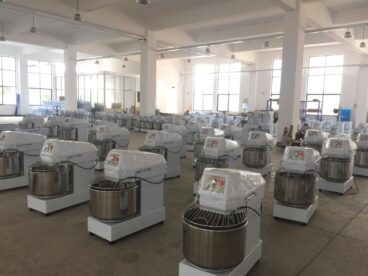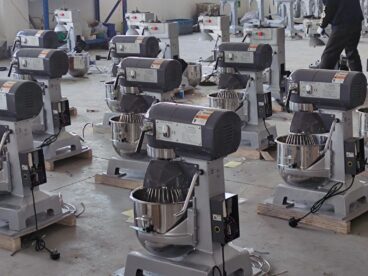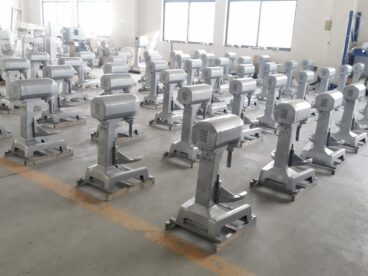Catering is a multifaceted industry that demands precision, efficiency, and quality. At the heart of a successful catering business lies its equipment. From the preparation of food to its presentation and service, every aspect of catering is heavily reliant on the right tools and machinery. This blog post delves into the various reasons why equipment is crucial in catering, exploring its impact on operational efficiency, food quality, safety, and customer satisfaction.
1. Operational Efficiency
Efficient operations are the backbone of any catering business. Proper equipment streamlines processes, reduces manual labor, and saves time. This includes everything from large-scale kitchen appliances to small utensils.
1.1. Speed and Productivity
High-quality equipment allows chefs and kitchen staff to perform tasks faster and more effectively. For instance, industrial ovens can cook large quantities of food uniformly and quickly, while commercial dishwashers can handle high volumes of dishes, reducing downtime.
1.2. Consistency
Consistency in food quality is vital in catering. Equipment like mixers, slicers, and food processors ensure that food is prepared to the same standard every time. This uniformity is crucial for maintaining the reputation of a catering service.
1.3. Automation
Modern catering equipment often incorporates automation, reducing the need for constant human intervention. Automated systems can handle repetitive tasks such as slicing vegetables, kneading dough, and even cooking certain dishes, freeing up staff to focus on more complex tasks.
2. Food Quality and Safety
The quality and safety of food are paramount in the catering industry. Equipment plays a significant role in ensuring that food is prepared, stored, and served in the best possible conditions.
2.1. Temperature Control
Refrigerators, freezers, and warming cabinets are essential for maintaining the correct temperatures for various food items. Proper temperature control prevents spoilage and ensures that food is safe for consumption.
2.2. Hygienic Preparation
Sanitary conditions are non-negotiable in catering. Equipment made from stainless steel, for example, is easy to clean and does not harbor bacteria. Additionally, specialized equipment like commercial-grade dishwashers ensures that all utensils and serving dishes are thoroughly sanitized.
2.3. Allergen Management
With increasing awareness of food allergies, catering equipment can help in managing allergens effectively. Separate storage and preparation areas, along with dedicated utensils and equipment for allergen-free food, help prevent cross-contamination.
3. Cost Management
Investing in the right equipment can significantly impact the financial health of a catering business.
3.1. Energy Efficiency
Modern catering equipment is designed to be energy efficient. Energy-efficient appliances reduce utility bills and are often more environmentally friendly, appealing to eco-conscious clients.
3.2. Durability and Longevity
High-quality equipment is a long-term investment. Durable appliances and tools require less frequent replacement, reducing ongoing costs and ensuring reliability during events.
3.3. Reduced Labor Costs
By streamlining operations and reducing manual labor, the right equipment can help catering businesses minimize labor costs. Automated and efficient tools reduce the need for a large workforce, allowing businesses to operate more cost-effectively.
4. Customer Satisfaction
The ultimate goal of any catering business is to satisfy its customers. Equipment plays a crucial role in delivering a memorable experience to clients.
4.1. Quality of Food
The right equipment ensures that food is cooked to perfection and presented beautifully. From maintaining the right texture to achieving the perfect taste, equipment influences every aspect of the culinary experience.
4.2. Timeliness
Catering often involves serving large groups of people within a tight timeframe. Efficient equipment ensures that food is prepared and served promptly, keeping events on schedule and guests satisfied.
4.3. Presentation
The aesthetic appeal of food is as important as its taste. Equipment such as chafing dishes, carving stations, and display platters enhance the presentation, making food visually appealing and enticing to guests.
5. Adaptability and Innovation
The catering industry is dynamic, with trends and client preferences constantly evolving. Equipment helps businesses stay adaptable and innovative.
5.1. Menu Expansion
With the right tools, caterers can expand their menus to include a variety of cuisines and cooking styles. Specialized equipment like sushi rollers, tandoor ovens, and sous-vide machines enable chefs to experiment and diversify their offerings.
5.2. Event Customization
Every event is unique, and clients often request customized setups. Portable and versatile equipment allows caterers to adapt to different venues and themes, providing personalized services that meet client expectations.
5.3. Technological Integration
Modern catering equipment often integrates with technology, offering features like programmable cooking settings and remote monitoring. This technological advancement allows for greater precision and control, leading to better outcomes.
6. Compliance with Regulations
Catering businesses must adhere to strict health and safety regulations. Equipment plays a vital role in ensuring compliance.
6.1. Health and Safety Standards
Equipment must meet regulatory standards for food safety and hygiene. Regular maintenance and calibration of appliances ensure they operate within the required parameters, avoiding potential health risks.
6.2. Training and Certification
Using sophisticated equipment requires proper training and certification. Ensuring that staff are well-trained not only improves efficiency but also ensures compliance with safety standards.
7. Scalability
As a catering business grows, its equipment needs to scale accordingly.
7.1. Large-Scale Events
For large events, having scalable equipment is crucial. Commercial-grade appliances that can handle increased volumes without compromising on quality or speed are essential for success.
7.2. Multi-Location Operations
For catering businesses operating in multiple locations, having standardized equipment across all sites ensures consistency and simplifies training and maintenance processes.
Conclusion
In the catering industry, equipment is not just a set of tools but a cornerstone of operational success. It impacts efficiency, food quality, safety, cost management, customer satisfaction, adaptability, compliance, and scalability. Investing in the right equipment and maintaining it properly is essential for any catering business aiming to deliver exceptional service and thrive in a competitive market. By understanding and leveraging the importance of equipment, catering professionals can enhance their operations, delight their clients, and build a sustainable, profitable business.






